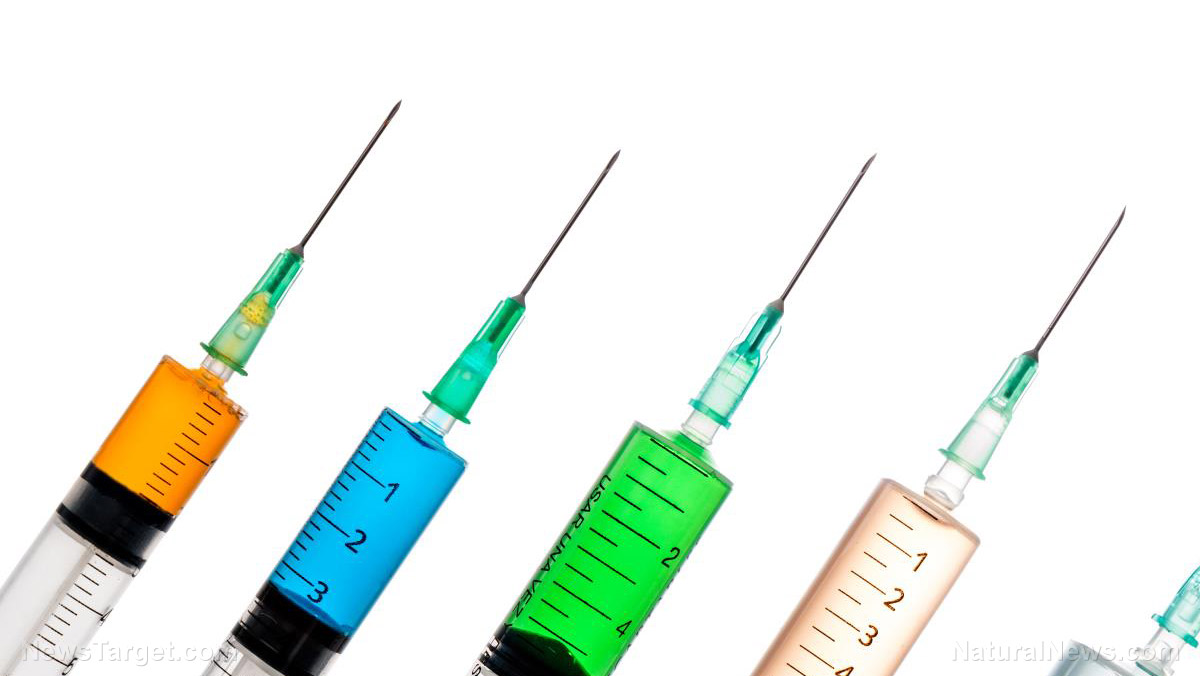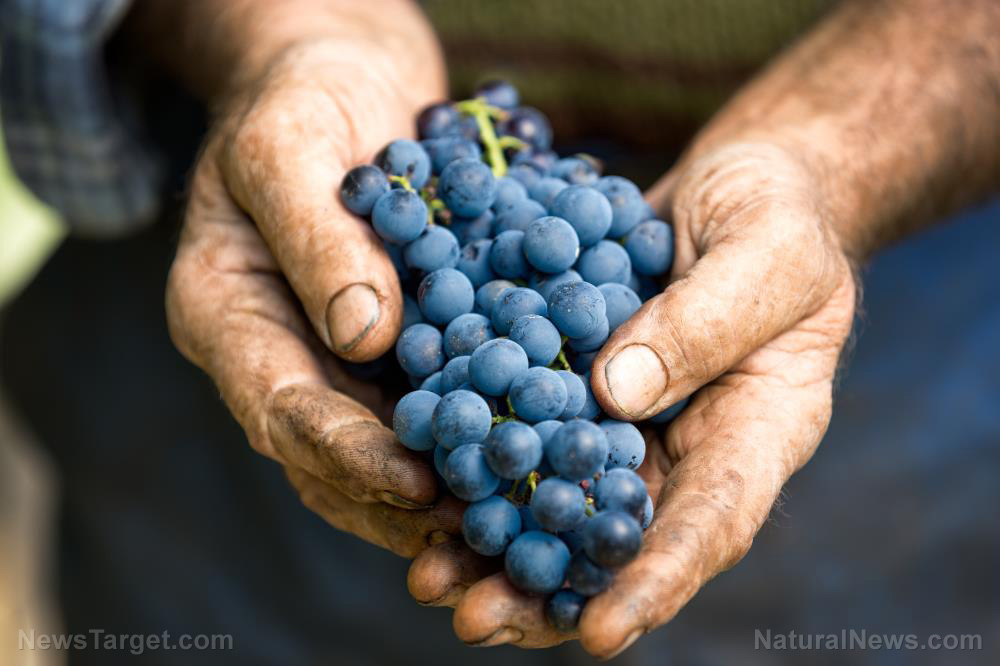Grape flavonoids are key to longevity and overall wellness
09/26/2024 / By Olivia Cook

For centuries, grapes have been a staple in human diets – from ancient civilizations to the vineyards of modern Europe. While they have long been associated with health and vitality, it is only recently that science has begun to unlock their true potential. The secret to their health benefits lies in powerful phytocompound polyphenols called flavonoids, which not only protect the brain and heart but also support overall wellness.
Flavonoids are a group of natural compounds found in plants, including grapes – the most mentioned plant in the Bible scriptures. These powerful antioxidants protect the body from oxidative stress, which plays a significant role in aging and the development of chronic diseases – long-lasting health conditions. Grapes, particularly their skins and seeds, are packed with these potent phytocompounds and they offer a range of benefits for the brain, heart, skin and more.
Longevity
The health benefits of flavonoids largely come down to their ability to combat oxidative stress – a process that accelerates aging and damage. Over time, oxidative stress leads to chronic conditions, like cancer, diabetes, heart disease and neurodegenerative diseases – disorders that affect the brain and nervous system like Alzheimer’s or Parkinson’s. Grape flavonoids help neutralize harmful free radicals – slowing the damage caused, extending the lifespan of cells and possibly even extending life expectancy.
Heart health and cardiovascular function
One of the most well-known health benefits of grapes and grape-based products, such as red wine, is their ability to support heart health. This phenomenon, known as the “French Paradox” highlights how populations in France, despite consuming diets rich in fats, have lower rates of heart disease. Researchers believe that regular consumption of red wine, which is rich in resveratrol and other grape flavonoids, plays a significant role in this.
Grapes promote heart health and cardiovascular function by the following mechanisms, among many others:
- Lower blood pressure. Resveratrol helps relax blood vessels, making it easier for blood to flow and reducing strain on the heart.
- Improve cholesterol levels. Grape flavonoids help reduce bad cholesterol (LDL) and increase good cholesterol (HDL), lowering heart disease risk.
- Prevent blood clots. Resveratrol has been linked to a lower risk of irritation and swelling (called inflammation) and blood clotting properties, which may help reduce the risk of strokes and other cardiovascular events. By lowering inflammation in blood vessels, flavonoids reduce the risk of atherosclerosis – a condition where arteries become clogged with fatty deposits.
Including grapes, grape juice or even moderate wine in diets could support long-term heart and cardiovascular health.
Brain health and cognitive function
In addition to protecting the heart, grape flavonoids play a role in preserving brain health. Resveratrol, in particular, has been shown to have neuroprotective properties – helping to protect neurons and prevent the onset of neurodegenerative diseases.
Several studies have demonstrated that flavonoids, the most abundant biologically active phytonutrients among grape polyphenols, improve blood flow to the brain – protecting against cognitive decline (more frequent confusion and worsening memory loss) as we age.
A study published in the Journal of Neuroscience found that flavonoids prevented the formation of beta amyloid plaques – abnormal protein clumps that accumulate in the brains of people with Alzheimer’s – and resveratrol, in particular, improved memory with reduced formation of these harmful unusual clumps and neurofibrillary tangles. This finding provides hope for future therapies aimed at preventing or slowing cognitive impairment in humans.
Anticancer
Grape flavonoids have also been studied for their anti-cancer properties. They may help prevent the development of certain types of cancers by inducing apoptosis (programmed cell death) in cancer cells and inhibiting tumor growth.
Research shows that flavonoids such as quercetin and resveratrol can interfere with the growth of cancer cells in the breast, colon and prostate. They may also reduce the risk of metastasis – where cancer spreads from one part of the body to another.
Skin health and rejuvenation
Beyond their internal benefits, grape flavonoids also have significant effects on skin health. By protecting skin cells from oxidative damage and UV radiation, these natural compounds help prevent premature aging. They also support the production of collagen – a protein that keeps skin firm and elastic.
The anti-inflammatory properties of grape flavonoids help reduce skin inflammation, which can greatly contribute to conditions like acne (a skin condition that causes blocked pores and pimples), eczema ( a condition that makes skin dry, itchy and red) and rosacea ( a chronic skin condition that causes redness and visible blood vessels).
Embrace grapes as part of a healthy, moderate diet to unlock their full potential for a longer, healthier life.
Visit Superfoods.news for more stories like this.
Grapes are God’s amazing natural medicine. Watch this video.
This video is from the Health Ranger Report channel on Brighteon.com.
More related stories:
Grapes: Versatile fruit with health benefits.
Facts about grapes and their amazing benefits are proven.
Sources include:
Submit a correction >>
Tagged Under:
#nutrition, aging, brain health, cancer, cardiovascular health, cognitive function, flavonoids, food cures, food is medicine, grape flavonoids, grapes, heart health, longevity, oxidative stress, resveratrol
This article may contain statements that reflect the opinion of the author




















